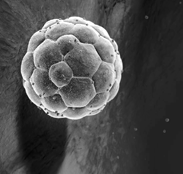
Overnight, former pathologist Jack Kevorkian was granted parole from his
Michigan prison after serving 8 years for second degree murder. Kevorkian is colloquially known as Dr. Death for his history of advocating voluntary euthanasia, (also known as assisted suicide or sometimes mercy killing). Between 1990 and 1998, Kevorkian allegedly assisted in the suicide of nearly one hundred terminally ill people who themselves took the final action which resulted in own deaths. Despite a decade of controversy where he widely promoted his views on assisting the terminally ill or intolerably in pain, he crossed the legal line in 1998 by personally administering lethal injections to a man with Lou Gehrig's disease and sent the tape to
60 minutes. His impending release re-opens the emotional debate surrounding euthanasia; a debate this Administration believes should re-explored here in
Australia. Settle in, this could be a long post.
For context, Australia has its own pro-euthanasia campaign, begun by our own Kevorkian, Dr. Phillip Nitschke. Nitschke successfully campaigned to legailise euthanasia in the Northern Territory in 1995 (subsequently overturned federally) and founded the group Exit to disseminate his views. The group remains active today, despite federal legislation passed in June 2005 that forbids the viewing or possession of 'suicide promotion material' – which sought, it seems, to end the euthanasia debate in this country. For me, part of the problem during the first round of discussion on this issue was the messenger - as both Kevorkian and Nitschke were viewed as weird (and creepy) angels of death, with media focus very much on their ‘death machines’ and clinical (read heartless) view of the issue. Nitschke’s promotion of plastic bags with elastic bottoms, designed for suffocation (called Exit Bags) is a clear example of this lack of tact.
Other nations have managed to rise above the hysteria, have a discussion of the issues and pass legislation supporting euthanasia. Belgium, Switzerland, and the US state of Oregon all have approved bills while the Netherlands is perhaps the most famous proponent of these laws. The Termination of Life on Request and Assisted Suicide Act took effect in 2002 and 1629 cases were reported the next year. The key to the workability of the Dutch law is the strict guidelines in place for its use. These include: Unbearable suffering, with no prospects of improvement, voluntary (and repeated) request by the patient, full patient awareness of their prospects and verification of the condition by more than one doctor, to name a few.
Now with all that in mind, I think it’s an issue well worth revisiting here in Australia. You only need to meet a single person suffering from a terminal illness, or in unbearable and incurable pain, (or to conceive of yourself in such a position) to believe that these people at the least deserve the option of euthanasia. It is indeed one of the (morally) slippriest slopes in medicine and admittedly, has the potential to be misused. However, following the Dutch model, and this Administration’s own policies on stem cell use – the correct guidelines and oversight would ensure that it was used only for good. Interestingly, the Swiss law guards against misuse of euthanasia by specifically requiring that the motive for death to be ‘unselfish’.
Unfortunately this is yet another issue where the Liberal’s have stifled public debate of a vital issue, and allowed the religious right within their midst’s to have the last say. This Administration is committed to re-engaging the people about euthanasia and working towards a time where it can be legally practiced in this country.





